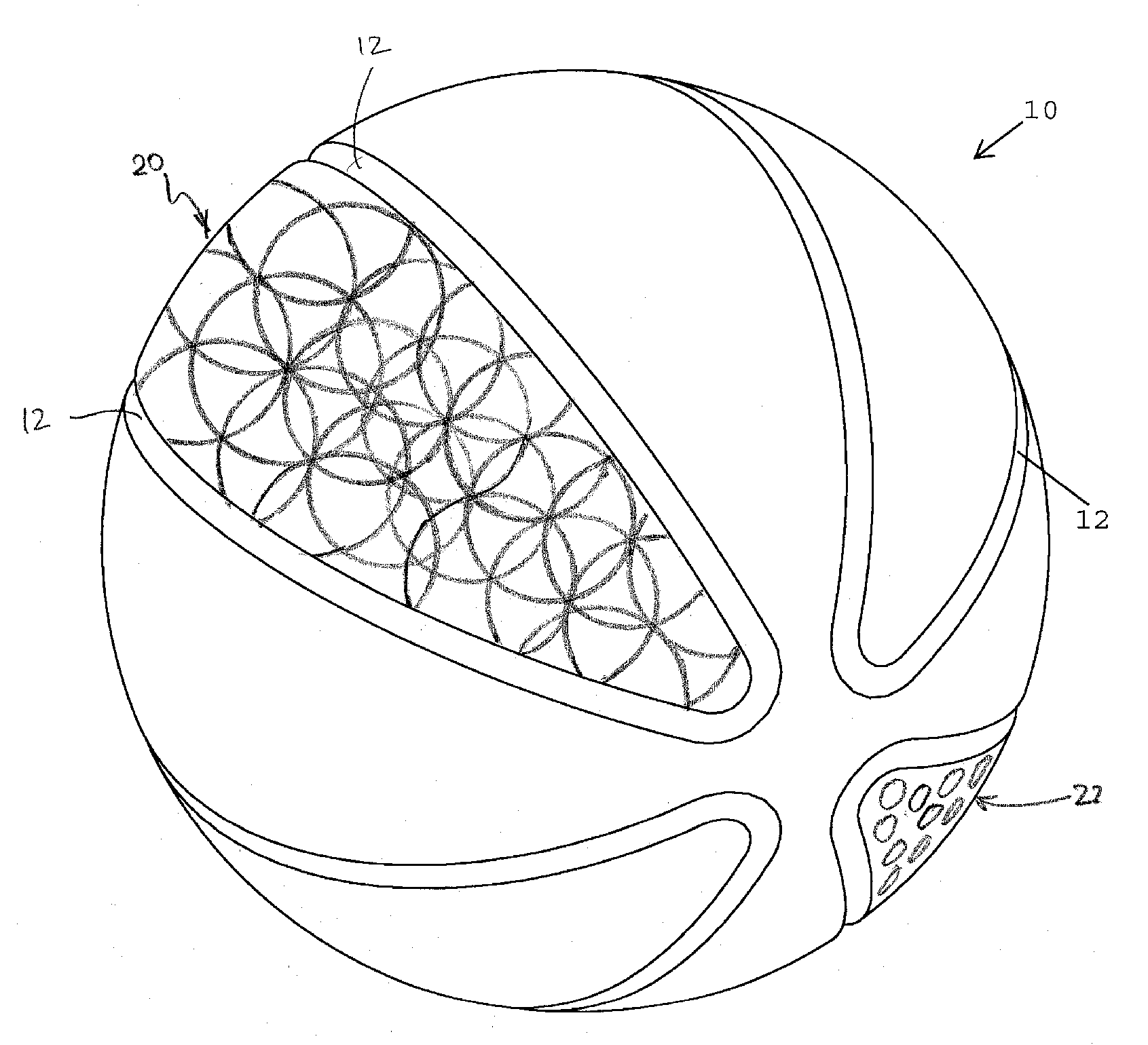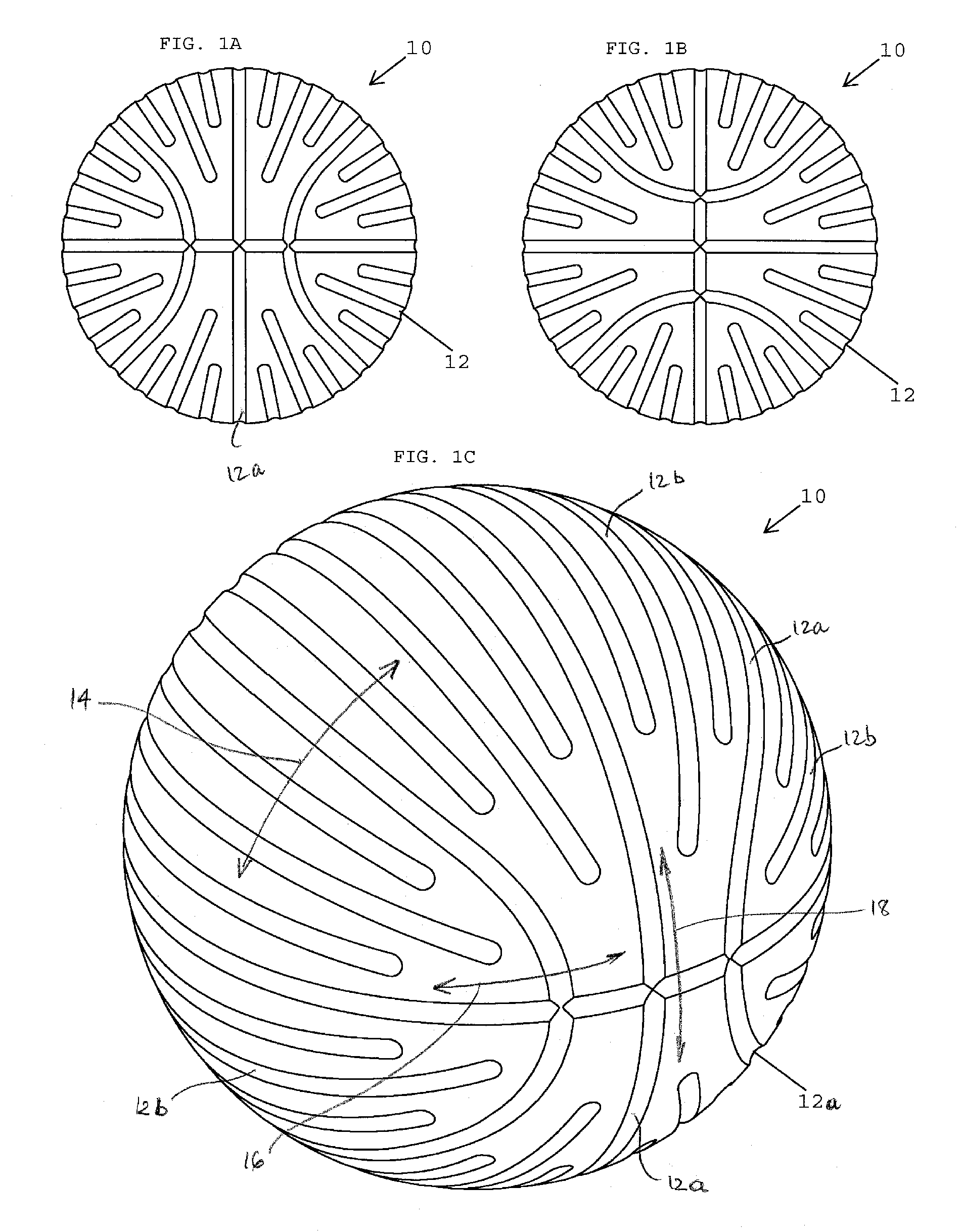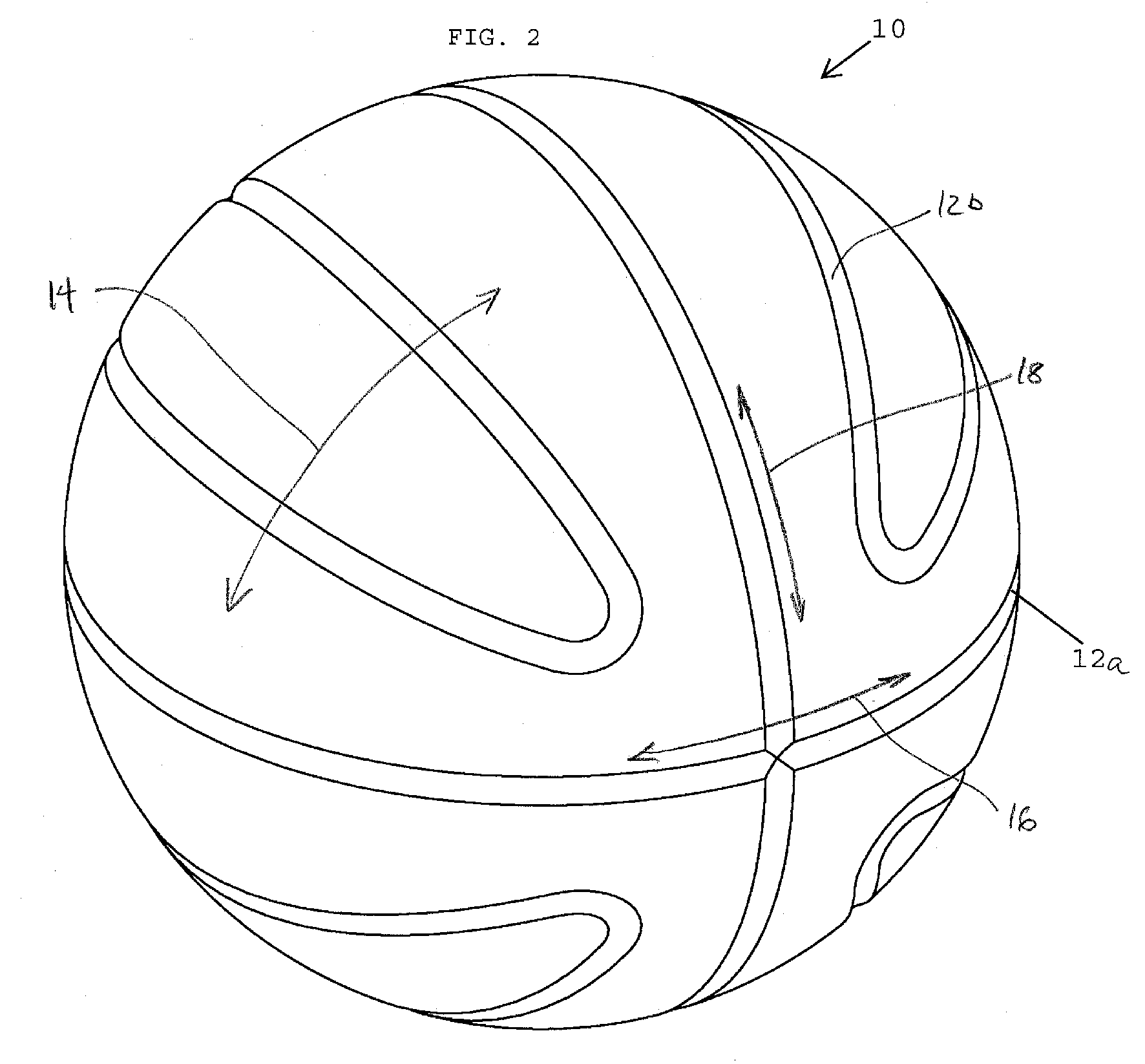Golf ball surface patterns comprising multiple channels
a golf ball and surface pattern technology, applied in the field of golf balls, can solve the problems of small dimples not always very effective in reducing drag and increasing lift, space does not improve the aerodynamic performance of the ball, and the effect of increasing the flight symmetry
- Summary
- Abstract
- Description
- Claims
- Application Information
AI Technical Summary
Benefits of technology
Problems solved by technology
Method used
Image
Examples
Embodiment Construction
[0017]In one embodiment as illustrated in FIGS. 1-19, the present invention comprises a golf ball 10 having a channel system comprising one or more surface channels 12 to improve the ball's aerodynamics. Channels 12 may have any desired shape or pattern. This may include, but is not limited to, geometric patterns, fractal patterns, irregular patterns, linear and non-linear lines, and the like. In one embodiment, it may be desirable for the pattern to be a combination of at least two of geometric patterns, fractal patterns, irregular patterns, and lines. Golf ball 10 may have a single channel 12 that transcribes the ball as illustrated in FIGS. 13 and 14 or may comprise multiple intersecting or non-intersecting channels. Channels 12 may have any shape, including, but not limited to linear, circular, oval, arcuate, sinusoid, irregular, or combinations thereof. Channels of the present invention may also have any of a variety of cross-sectional shapes, including, but not limited to, sem...
PUM
 Login to View More
Login to View More Abstract
Description
Claims
Application Information
 Login to View More
Login to View More - R&D
- Intellectual Property
- Life Sciences
- Materials
- Tech Scout
- Unparalleled Data Quality
- Higher Quality Content
- 60% Fewer Hallucinations
Browse by: Latest US Patents, China's latest patents, Technical Efficacy Thesaurus, Application Domain, Technology Topic, Popular Technical Reports.
© 2025 PatSnap. All rights reserved.Legal|Privacy policy|Modern Slavery Act Transparency Statement|Sitemap|About US| Contact US: help@patsnap.com



